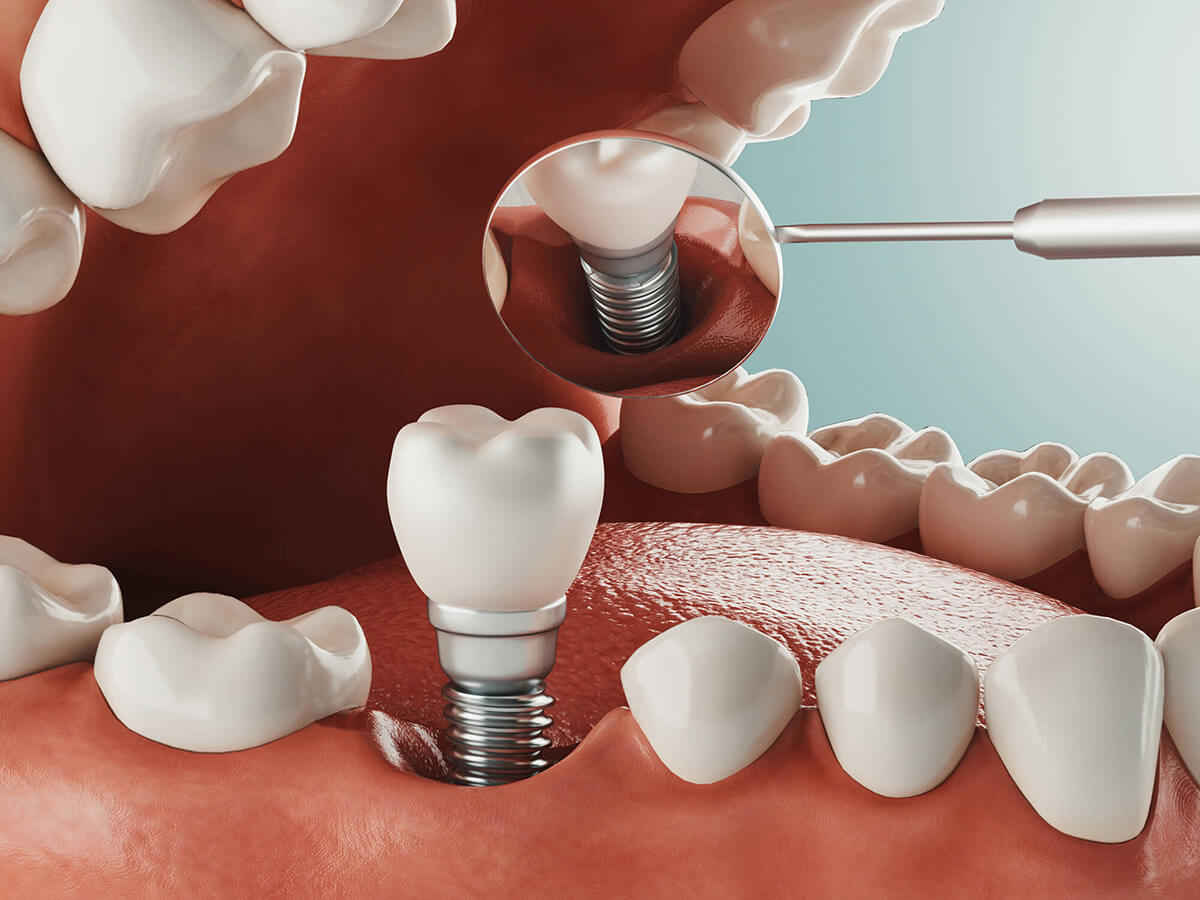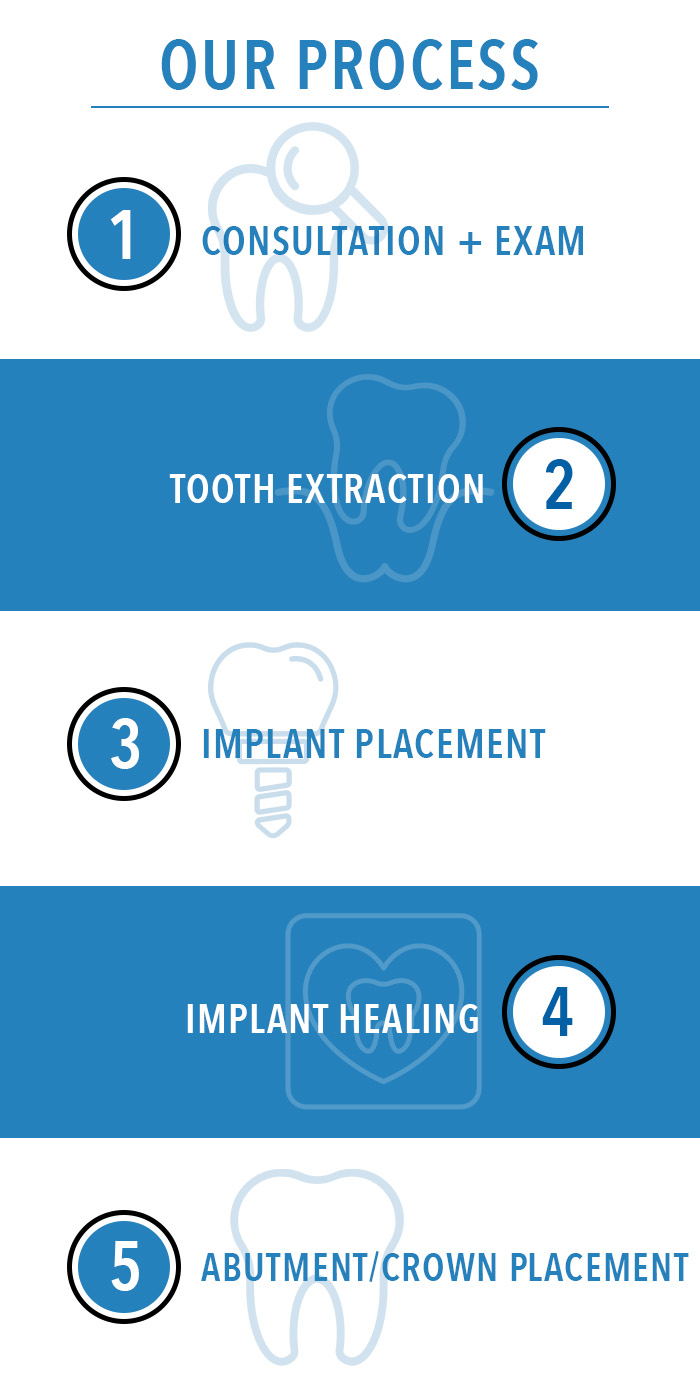Dental Implants
Dental implants offer a secure and reliable solution for replacing missing teeth, whether it's one or multiple. This permanent solution looks and works like natural teeth, restoring your smile and your ability to eat and speak normally.
Dental Implants in Oklahoma City, OK
Dental implants are a highly effective method of replacing missing teeth, providing long-term support. Depending on the individual’s needs and condition, implants can replace a single tooth, multiple teeth, or larger prostheses such as dentures. Placement of the implant helps to maintain bone levels and can even prevent bone loss, providing greater stability in the long run. Additionally, dental implants do not require alteration of adjacent teeth, making them an ideal solution for replacing missing teeth.

Warwick Dental's Implant Specialist

Dr. David Lawerence
DDS, FAGD, AFAAID
Dr. David Lawerence, an Oklahoma native, has a goal to improve the lives of all the patients that walk through the doors. He understands the importance of quality dental care and the impact it can have on life. Dr. Lawrence graduated from the University of Oklahoma College of Dentistry in 2016 and continues to cheer on the Sooners.

Dental Implant Procedure
Dental implants require a series of steps to achieve the desired result. The exact process for each individual will depend on their oral health before the implant procedure.
- Consultation and dental exam. A comprehensive dental exam will determine if dental implants are a viable treatment option for you.
- Tooth extraction. In certain situations, removing the tooth or teeth that will be substituted with an implant or implants may be necessary. If there is bone loss around the area where the implant will be positioned, a dental bone graft will be carried out.
- Implant placement. The implant will be surgically inserted into the bone and covered with a healing cap to initiate the healing process.
- Implant healing. After a dental implant is placed in the jaw, osseointegration begins. This process involves the healing and fusion of the jawbone with the implant, which creates a sturdy base for the artificial tooth. The implant typically takes 4-6 months to integrate fully with the bone.
- Abutment/crown placement. A small metal, typically titanium, abutment attaches an artificial tooth (crown) to an implant. The abutment is first fixed to the implant, then the crown is placed on the abutment.
If you believe a dental implant is your treatment option, please call us today.
-
What is the procedure for dental implants? Are dental implants safe?
Getting dental implants involves several steps to ensure safety and success. The first step is for the dentist to examine the implant site and determine if any teeth need to be extracted or if bone grafting is necessary. This is followed by a period of healing, during which time the patient will need to wait a few months for the bone to become strong and healthy enough to support the implant. Once the healing phase is complete, the dental implant is placed into the bone, and a healing cap covers it. The patient will then need regular check-ups to monitor the healing process and ensure no infection. Overall, dental implants are a safe and effective replacement for missing teeth.
-
What types of dental implants exist?
There are two common types of dental implants: endosteal implants and all-on-4 implants. Endosteal implants are made up of a titanium metal rod that is placed into the jawbone and a supporting post that secures a dental crown or bridge. All-on-4 implants are a newer system in which just four implants support an entire top or bottom denture, strategically placed for stability and faster recovery. The benefit of using four implants is that it reduces the risk of implant failure complications.
-
What are the benefits of dental implants?
Tooth loss can lead to many difficulties, such as problems with chewing and clear speech. Left untreated, it can also result in severe issues like tooth shifts, jawbone deterioration, facial structure loss, and bite imbalances. These problems develop over time when no root system maintains bone health and alignment. Dental implants serve as an anchor to maintain the alignment of remaining teeth. They can help a patient overcome short-term and long-term challenges linked to tooth loss. Dental implants are the most effective method for treating tooth loss because they are an artificial root system that supports a prosthetic tooth, allowing replacement teeth to feel more natural.
Need More Information About Dental Implants?
Don’t live in pain any longer! Call our office, or you can book your consultation online today!
